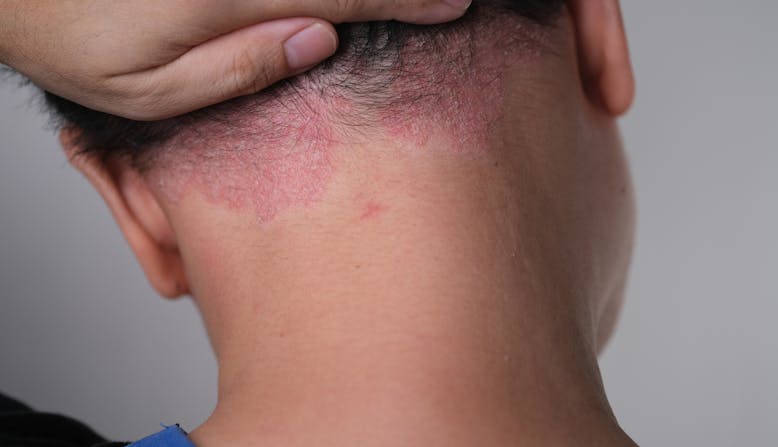Over-the-Counter Products
Over-the-counter (OTC) products may help manage symptoms if you have mild scalp psoriasis. The two active ingredients that you should look for in OTC products are salicylic acid and tar (either coal or pine wood tar).
- Salicylic acid works to soften plaques and scales and remove scales from the skin.
- Tar made from coal or pine wood works to slow skin cell growth and reduce inflammation, itching, and scaling.
If you are looking for OTC products to try, check out NPF's Seal of Recognition program. These products have been created or are intended to be non-irritating and safe for people with psoriasis.
Topicals
Topical treatments include medicated psoriasis shampoos, topical steroids, and tars as well as prescription topicals. Because the hair is in the way, treating the scalp with topical treatments is not always easy. Talk with your dermatologist about how you normally care for your scalp, including how frequently you wash your hair. These conversations are important in making the right treatment decision for you.
Phototherapy
Phototherapy for psoriasis uses ultraviolet (UV) light to slow skin cell growth. Handheld phototherapy units with built-in combs are available to help UV rays reach the scalp.
Systemics
Oral psoriasis treatments, biologics, and biosimilars are often prescribed if you have psoriasis on areas beyond the scalp or if your scalp psoriasis has not responded well to other treatments.
Prevention
There is no known way to prevent the onset of psoriasis, however, there are many ways that you can manage your triggers to reduce flares.
Outlook/Prognosis
Psoriatic disease is lifelong, and symptoms may resolve and recur throughout the lifetime.
While there is no cure for psoriasis, treatments today are more effective than ever before and research into new treatments, as well as a cure, is ongoing. Treating psoriasis can help improve symptoms and may decrease the associated inflammation that can lead to psoriasis comorbidities such as psoriatic arthritis, heart disease, and depression.
%20scalp%20pso%2029.jpg?ixlib=gatsbyFP&auto=format%2Ccompress&fit=max&rect=0%2C12%2C745%2C428&w=778&h=447)
%20scalp%20Psoriasis_28.jpg?ixlib=gatsbyFP&auto=format%2Ccompress&fit=max&rect=0%2C43%2C482%2C277&w=778&h=447)



.png?ixlib=gatsbyFP&auto=compress%2Cformat&fit=max&rect=12%2C0%2C1175%2C675&w=778&h=447)